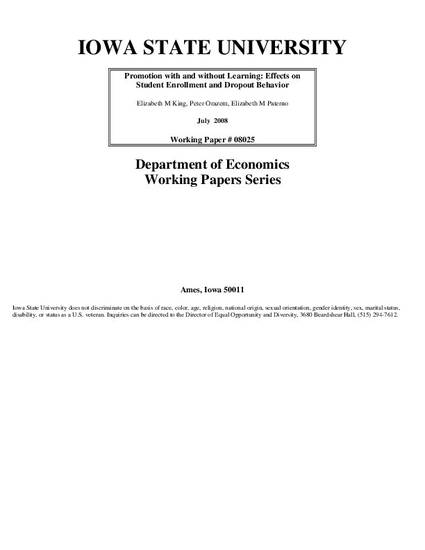
Automatic promotion policy presumes that grade retention discourages continuation in school and that the lenient promotion of students with poor performance does not hamper their ability to do well in the next grade. However, promoting students into grades for which they are not prepared may backfire, leading to early dropouts. An econometric decomposition of promotion decisions into a component that is based on merit (attendance and achievement in tests) and another component that is uncorrelated with those indicators allows a test of whether parental decisions to keep their child in school is influenced by merit-based or nonmerit-based promotions. Results suggest that the enrollment decision is significantly influenced by whether learning has taken place. The effect of grade promotions uncorrelated with merit on persistence in school is only 20 to 33 percent as large as the effect attributed to merit-based promotion.
Available at: http://works.bepress.com/peter-orazem/70/

This is a working paper of an article from The World Bank Economic Review (2015): 1, doi: 10.1093/wber/lhv049.